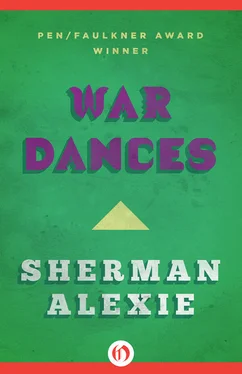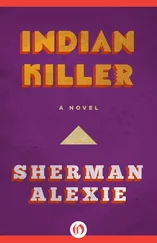“I can’t do it,” he said to the director. “The book is about Blake. How can you take Blake out if the book is about Blake?”
“Fuck Blake,” the director said. “And fuck this book. Do you think this book is the fucking Bible? Do you think it’s sacred? Jesus, we’re making a movie, and that’s more fucking important than this book. I’m going to make a movie that’s ten times — a hundred times — greater than this fucking book. So are you going to take out the fucking Blake or what?”
“I can’t do it,” Sherwin said.
“Then fuck you. You’re fired.”
It was easy to fire screenwriters. But Sherwin was not just a screenwriter. He was also the author of a book of short stories and two volumes of poetry, and he still wanted to explore the notion of heroic self-sacrifice, so he decided to write a series of sonnets dedicated to smoke jumpers. At his home in San Francisco, he sat at his computer and stared at the blank screen. He sat, silent and unworking, for hours, for weeks, for months. Every time he tried to write a word, a metaphor, a line of poetry, he could only hear the critical voices of the studio executives and the director: The hero can’t die. Get rid of the William Blake shit. Sherwin had fallen victim to his own imagination. He couldn’t create anything on the page, but he was fully capable of creating fictional and aural ghosts who prevented him from writing.
Desperate, he decided the computer’s advanced technology was creating the impediment. He decided to go back to the beginning — to the Adam and Eve of writing — the pen and paper. Yes, he tried to write by hand. He reasoned that if Herman Melville could write Moby-fucking-Dick with an inky feather, he could write one measly goddamn sonnet with a felt tip pen and graph paper. But he could still hear the executives and director talking. The hero can’t die. Get rid of the William Blake shit. He was suffering from Hollywood-induced schizophrenia and couldn’t produce a word. Polatkin had always mocked those folks who’d claimed to suffer from writer’s block. But now, he was a writer …
Who could not produce one goddamn word.
The poems had migrated like goddamn birds.
And no matter what you may have heard,
Writer’s block causes physical hurt.
The fool couldn’t wear a goddamn shirt
Because the cotton scratched, bruised, and burned
His skin. His stomach ached; his vision blurred.
What happens to a soul that’s shaken and stirred?
What happens to a writer who can’t write?
Who flees his office and drives through the night,
In search of some solace, some goddamn streetlight
That will illuminate and give back his life,
His odes and lyrics? The desperate fool tried
Every workshop trick. The agnostic fool cried
To God for relief. God, can a man die
Of writer’s block? Well, the fool did survive
… the early and most painful stages of his creative disease.
Sherwin grew numb. He became strangely complacent with the idea that he would never write again. Oh, Sherwin still loved words, but he found other ways to play with them. He discovered the magic and terror of crossword puzzles. He read dictionaries and encyclopedias that promised to help him solve the most difficult ones. He soon became good at crossword puzzles. By testing himself using the same crosswords the best puzzlers solved in competition, Sherwin learned that he was probably one of the best five hundred crossword puzzle solvers in the English-speaking world.
He’d become that good after only six months of part-time work. How good could he become if he dedicated himself fully to the task? He figured that by living even more frugally than he had for the last decade, he had enough cash to survive for one more decade. So he decided to become, for lack of a better term, a crossword monk. But instead of praying, instead of keeping a diary, instead of transcribing by hand every page of some holy book, Sherwin made lists of words, the most common crossword-puzzle answers:
AREA
OLE
ERA
IRE
ERE
ESE
ELI
ENE
ALE
ARE
ALOE
ATE
EDEN
NEE
ALI
ALA
ETA
AGE
ESS
IRA
ERIE
ACE
ANTE
ELSE
ARIA
ODE
ERR
EVE
ADO
ETNA
IDEA
ASEA
EEL
ASH
END
ANTI
ANT
EAR
APE
ARI
ACRE
ETAL
EST
That was just the short list. There were a thousand or more common answers. They were the building blocks of crossword puzzles. But the quality — the comedy and tragedy — of a puzzle often had less to do with the answers than with the clues. A great solver understood the poetry of the clues. The most difficult puzzles used puns, misdirection, verb-noun elision, and camouflage in their clueing.
Sherwin believed himself to be a great solver, so he traveled to the American Crossword Puzzle Championship in Stamford, Connecticut.
When he stepped into the conference room, crowded with solvers who all seemed to know one another, Sherwin was nervous and vaguely ashamed of himself. Was this what his life had come to? He’d been flying first class to Hollywood, and now he was paying too much for a king bed nonsmoking in a Hilton in Connecticut? Yes, it was a wealthy, lovely, and privileged part of the state, but it still felt like a descent.
But wait, Sherwin thought, stop judging people. These solvers were a group of people who had to be clever. These people were thinkers. Yes, there had to be plenty of eccentrics — compulsive hand-washers, functioning autistics, encyclopedia readers, and compulsive cat collectors — but didn’t that actually make them a highly attractive group of people? When had Sherwin been anything other than a weird fucker? Didn’t he get paid to be a weird fucker?
“Hello,” he said to the woman at the registration desk. She wore a name tag with her name, Sue, spelled out on a crossword grid.
“Hello,” Sue said. “Welcome to the tournament. Are you a contestant or a journalist?”
“A contestant.”
“So this must be your first time here?” she asked.
“How do you know that?”
“Oh, this is a family, really, a highly dysfunctional family.” She laughed. “I know everybody. But I don’t know you. So that makes you new.”
“You’ve got me.”
“Okay, I’ll sign you up for the C Group.”
“C? What’s that?”
“It’s for new solvers.”
“I’m new,” Sherwin said, “but I’m good.”
“Oh, first-timers are always C Group. If you do well enough on the first few puzzles, they’ll consider moving you up right away, but that rarely happens.”
“Why not?”
“Because the puzzles are always more difficult than you’d expect. And because the pressure — well, first-timers have no idea how much pressure there is. And — well, they tend to choke a bit.”
Sue laughed again.
“Are you laughing at me?” Sherwin asked.
“Oh, no,” she said. “I’m sorry. I’m laughing at myself. I’ve been coming to this tournament for seventeen years and I’m still a C Group. I keep choking year after year.”
“I’m used to pressure.”
“Oh, I’m not judging you. It’s all supposed to be fun. It is fun. Just sign up with the C Group and have fun. This is your first time. You have years of fun ahead of you.”
Years of fun? When had anybody ever said such a thing and meant it? Sue meant it. Sherwin shrugged and signed up for C Group.
Later that afternoon, he sat at a long table in a room filled with long tables. He had four pencils and a good eraser. He sat beside an elderly Korean woman who looked as if she’d been born in her sweater.
Читать дальше












